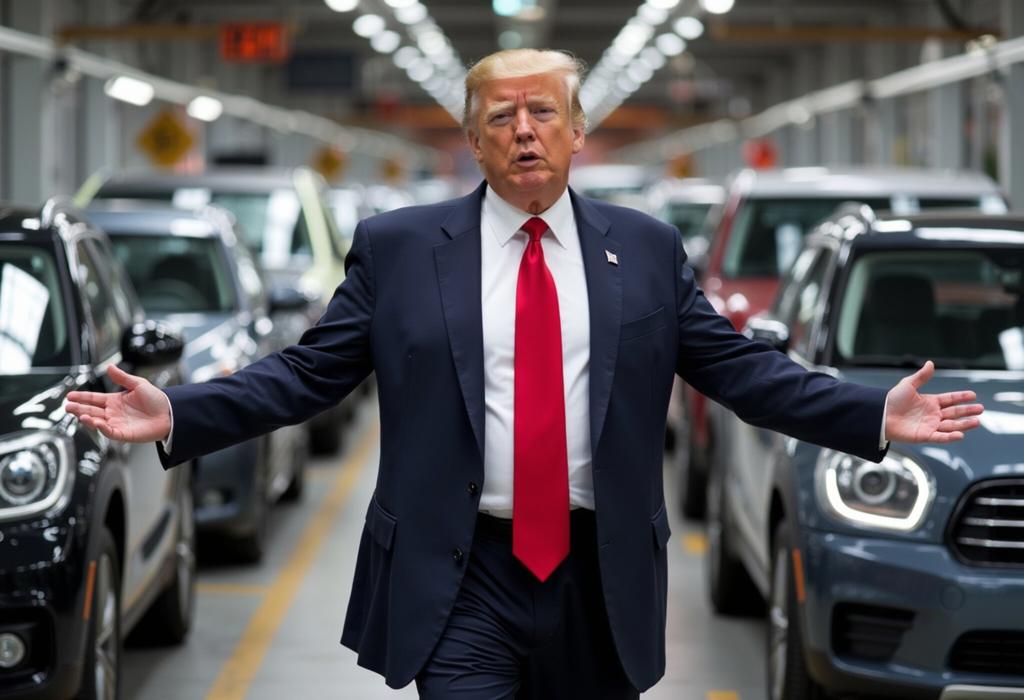In a recent conversation with Scott Kunes, COO of Kunes Auto Group, the impact of President Trump's new tariffs on vehicles and parts was discussed, raising both optimism and concern within the auto industry. Kunes noted a significant temporary surge in sales, with the National Automobile Dealers Association reporting a 14% increase in industry sales month-over-month coinciding with the tariff announcement. This behavior signals a common consumer response to perceived future price increases, as buyers rush to make purchases before expecting higher costs. Kunes emphasizes a strategic pivot within the auto industry post-pandemic from new to used vehicles, with used-car prices going up significantly as consumer demand fluctuated amidst supply chain issues.
The tariffs especially concern the pricing dynamics across new and used vehicles, as they could disproportionately affect entry-level cars and heavily impact the supply chain. Notably, import taxes will also apply to essential parts like engines and transmissions starting May 3, which many analysts warn will further elevate vehicle prices. While Kunes views the tariffs as ultimately beneficial for long-term U.S. manufacturing, there is uncertainty among manufacturers as layoffs and production pauses are already being announced in response to the tariffs. Automakers like Stellantis and Jaguar Land Rover are adopting measures to protect against the tariff impacts, which lead to immediate layoffs at some factories.
The controversy surrounding these tariffs continues as the White House claims foreign companies will absorb these costs; however, a study from the National Bureau of Economic Research indicates that burdens typically fall on U.S. consumers. The narrative is exacerbated by the significant hit to the EV market, with rising tariffs on battery imports likely jeopardizing the growth momentum established in recent years, indicating that middle-market consumers might be less inclined to transition to EVs amidst increased costs. With economic and consumer consequences still unfolding, the auto industry is bracing for what the tariffs mean for the future landscape of vehicle sales and manufacturing in America. This comprehensive analysis has been reviewed and curated by artificial intelligence, ensuring insights are sourced from reliable discussions and market data.
AD
AD
AD
AD
Bias Analysis
Bias Score:
65/100
Neutral
Biased
This news has been analyzed from 14 different sources.
Bias Assessment: The news exhibits moderate bias as it presents a mix of expert opinions and factual data. However, the language sometimes reflects an optimistic view on the benefits of tariffs for U.S. manufacturing without sufficiently exploring the adverse implications on consumers and the auto industry as a whole, contributing to a slight skew towards pro-tariff sentiment.
Key Questions About This Article




